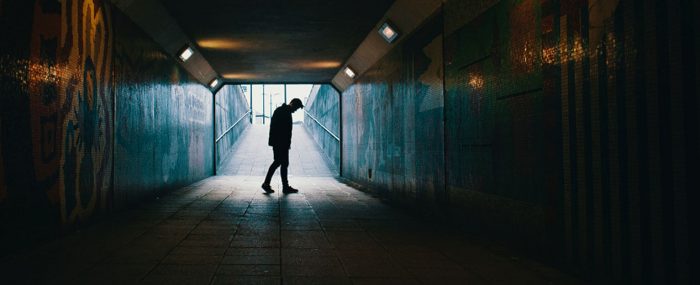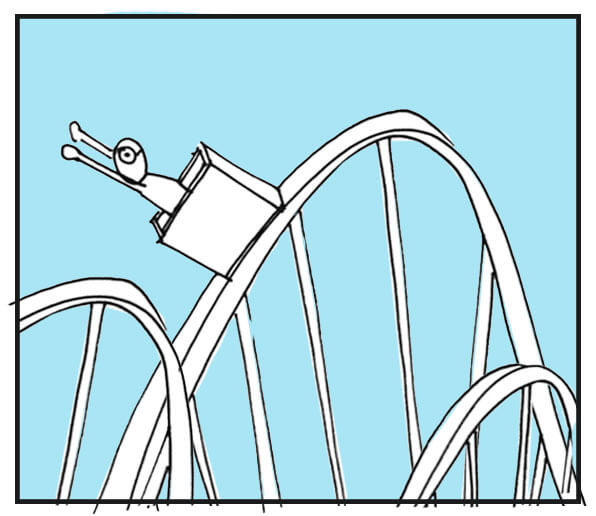Finding evidence:
I remember the evening well – I was alone at home in the midst of a difficult time, and I felt like I wanted the earth to swallow me up. I was overwhelmed and depressed, and even the radio was playing a German love song that I couldn’t understand. All around me were reminders of how alone I was.
Sounds pretty grim, right? The funny thing is, even in that moment I subconsciously knew I was looking for evidence to support my misery. I knew I had people I could reach out to, but I’d done such a good job of covering up my sadness and plastering on a smile that most of them had no idea I was even struggling.
I was creating a reality and then wallowing in it. Yes, some things were tough – but not nearly as difficult as I was building them up to be in my own head. *As a coach, sometimes it’s incredibly annoying to see when we are fooling ourselves into misery. Damn, I just wanted to soak in my depression for a while.
Well the good news is, that’s totally fine. Be depressed! Be angry! Be lonely!
And when you’re ready to move on, there is hope for that as well.
What are we really seeking?
When I look back on the example of that night, I see that I was actually seeking separation. I wanted to confirm my idea of being alone. I could have called a friend, but a reassuring voice on the other end of the line would have shattered my illusion. I couldn’t have that!
I wanted to be right more than I wanted the truth. It’s harsh and it’s true. And it’s a phenomenon that actually has a name. (whew. At least I’m not alone in that.)
Wait for it…
Confirmation Bias (or confirmatory bias) is the tendency to selectively seek out or interpret information that confirms a preconceived belief or idea.
Essentially, our ideas of how we think things are end up shaping how we gather and interpret new information. On the flip side, this means we also tend to filter out information that doesn’t support our view, disregarding a large portion of the available data. In essence, we solidify our thoughts into our reality, and then either succeed or suffer under those beliefs. How fascinating is that?
“People generally see what they look for, and hear what they listen for.”
— Harper Lee, To Kill a Mockingbird
It comes down to a simple question:
Would you rather be ‘right’ or would you rather see the truth?
Fair enough, it’s often easier to pick a side and just confirm it than to stay open to all the possibilities. For example, my belief that pistachio is the best flavour of gelato may be well established regardless of the opposition, and so far I’m not suffering too much under that bias.
But what happens when the ‘easiness’ of confirmation comes at the cost of fulfilment and peace of mind, or in the case here – connection? Then, maybe it’s worth a deeper exploration.
I see it. Now what?
Even when we know we have biases, it’s not always easy to identify and debunk them. One great place to start is with actively seeking disconfirming evidence. Find all the evidence you can to disprove your own theory.
Be a true sceptic: if what you believe is really true, then it can stand up to the opposition. If it is not, then you learn the truth. Win win.
The morning after that melancholy evening, I wrote a friend who immediately skyped me to check in. She’s a fellow coach, and we investigated all the evidence I could gather on both sides. Then we compared it to my little bucket of lonely-heart confirmations. It doesn’t mean that those factors didn’t really exist. It just gave me a real picture on my situation, and let me release some old beliefs and energy that had been keeping me trapped.
When we are ready and willing to explore behind our well-established thoughts and feelings, we open up the possibility to pulverise the things that separate us from deep connection and fulfilment. Get curious. Get real. Dig in.


 Blog
Blog 



